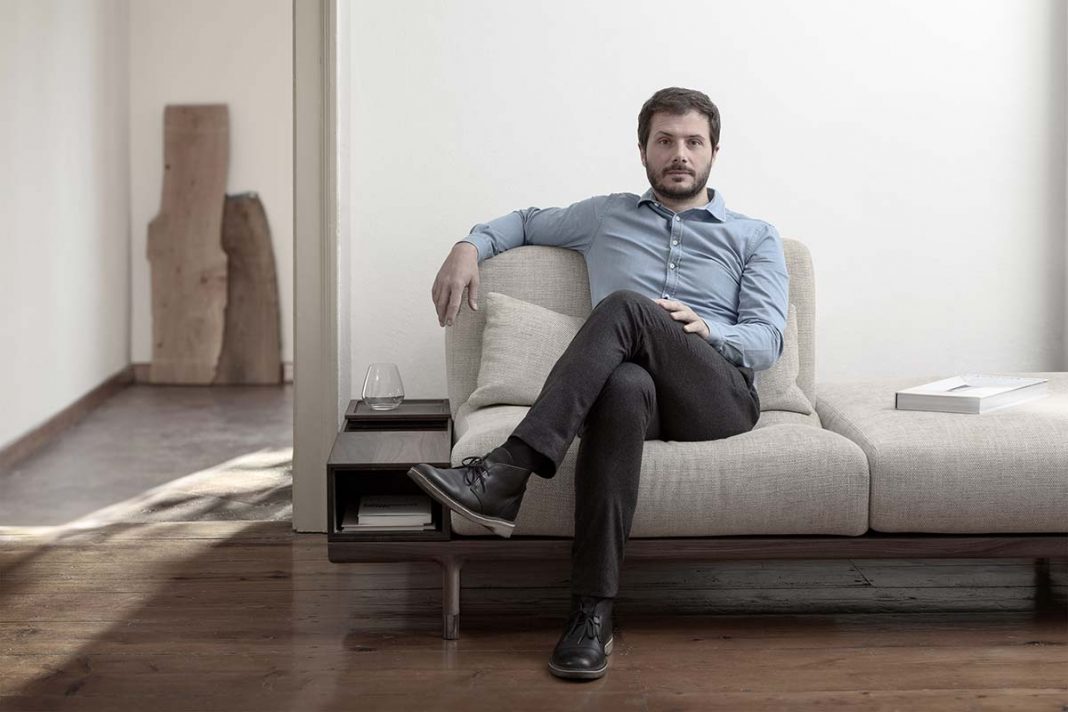HE CALLS HIMSELF AN ‘ANALOG’ PERSONALITY, NOT OUT OF NOSTALGIC ATTACHMENT TO THE PAST, BUT IN TERMS OF RHYTHMS, WORK WITH THE HANDS, PRACTICAL AND EMOTIONAL EXPERIENCE.
David Dolcini leads us on a voyage of discovery of his world and the philosophy behind is design, a world split between Valencia and Milan (his two studios), involving many collaborations with Italian and international brands (Luceplan, Porada, Bric’s, Panasonic, Riva1920, Galassia Ceramics, just to name a few). An approach poetically inspired by romantic humanism, putting man at the center of his reflections and his ‘doing’ by taking the ‘necessary’ time; the time needed to give the right value to objects and to allow new sensations to come to the surface.
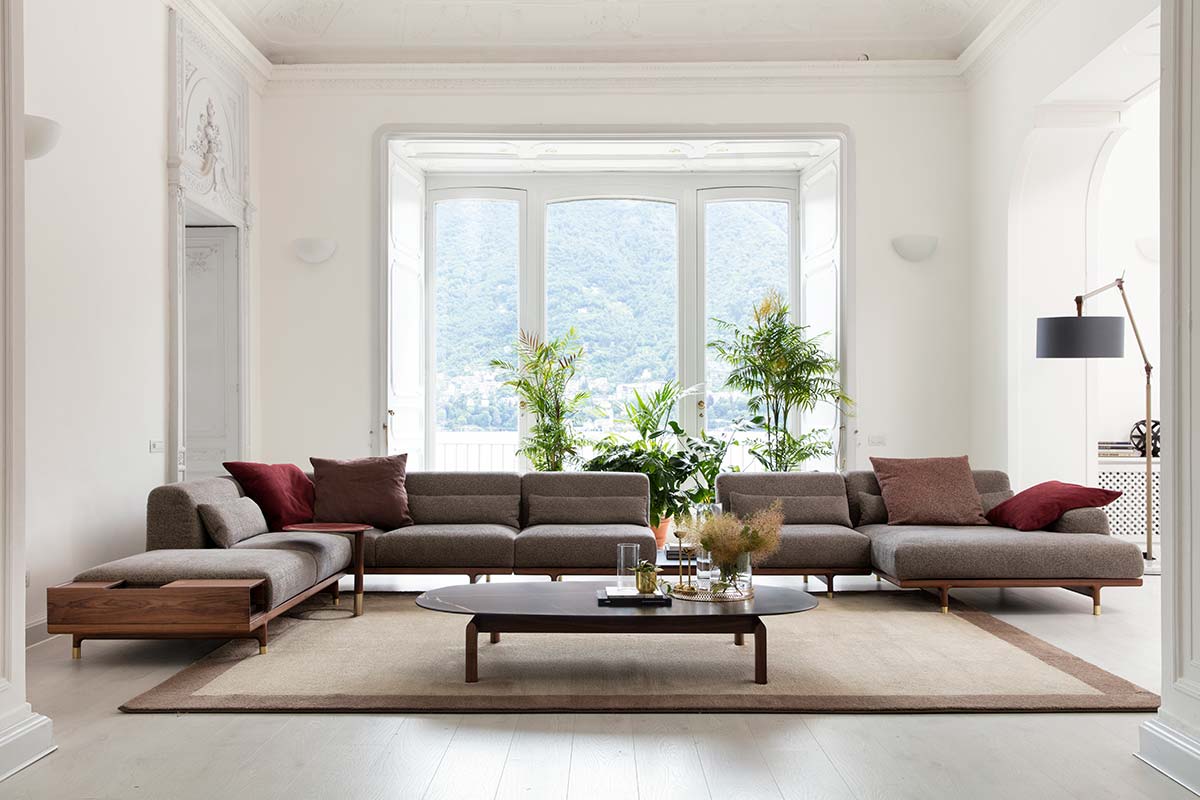
Argo by Porada – Design David Dolcini
“My studio is rather anomalous. With respect to colleagues, I have a different approach: I prefer to work on a few projects at a time, also devoting days to the making of a prototype, because I am very critical – as are the members of my staff – which makes us set aside lots of time for study and research.”
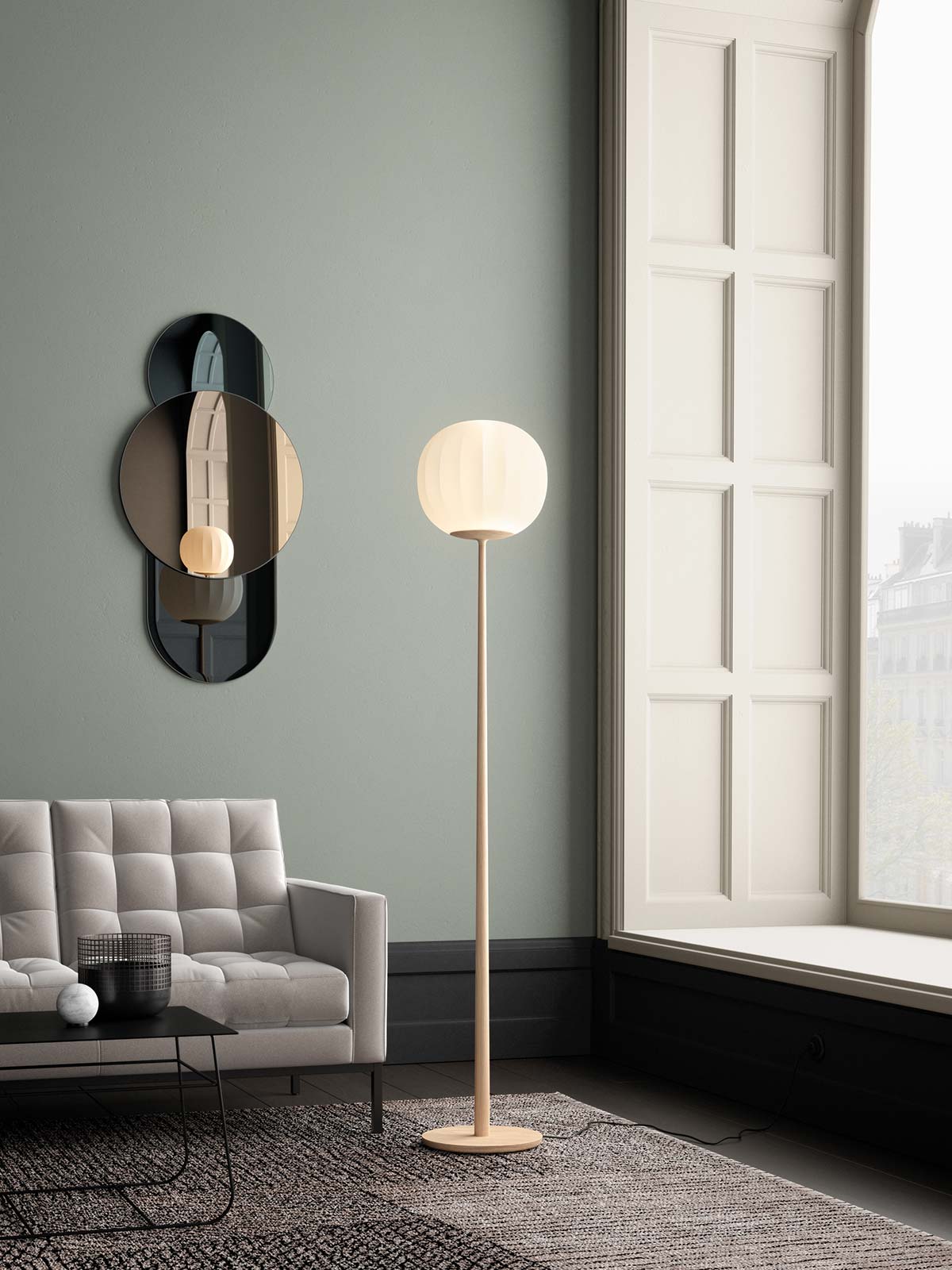
Lita floor lamp by Luceplan
Design David Dolcini
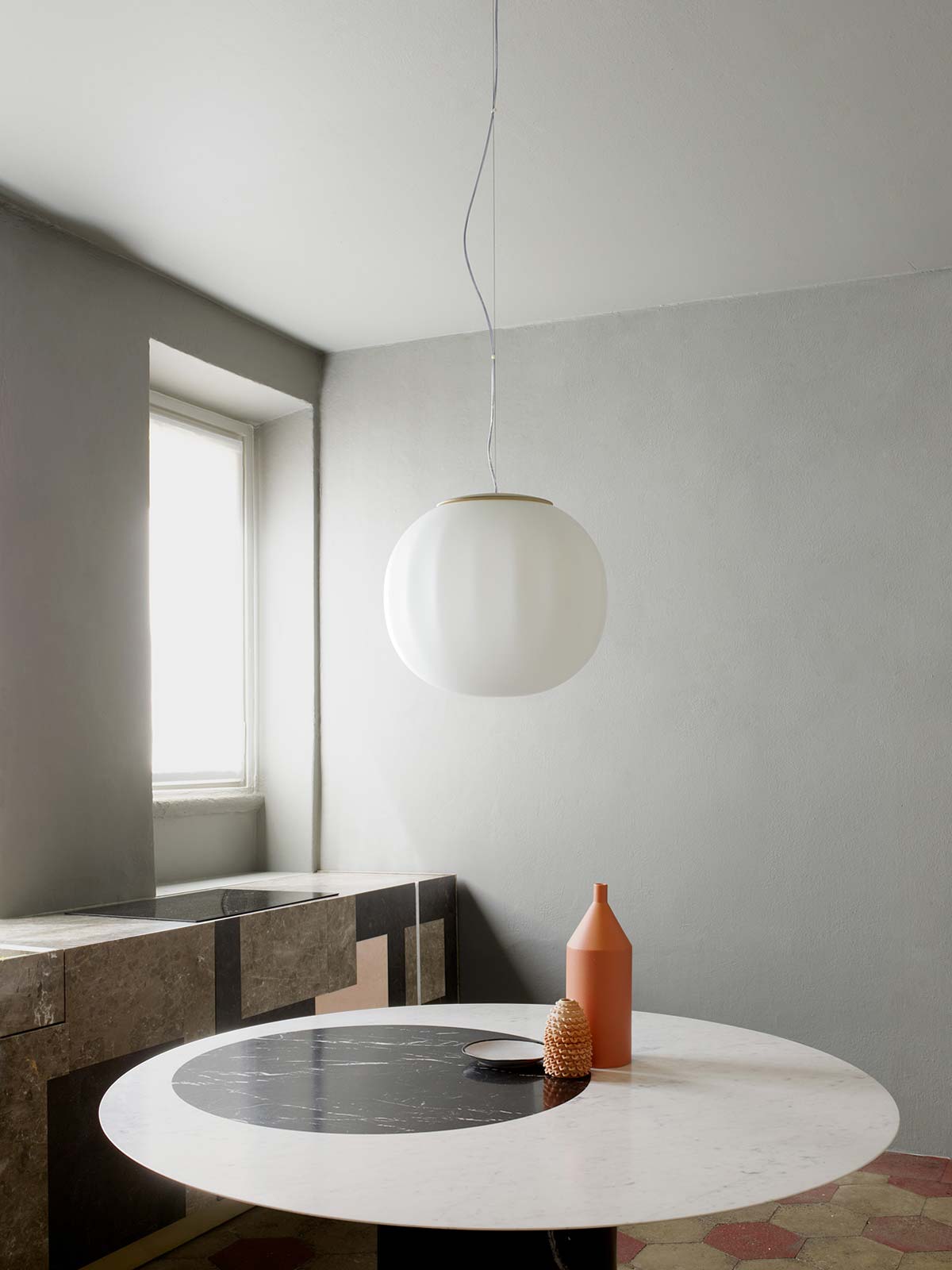
Lita suspension lamp by Luceplan
Design David Dolcini
Paradoxically, at the start of his career, when he was just 27, Studio Dolcini was larger, but “at a certain point you have to come to terms with your own character: to understand if you want to be a company or a boutique, with all the pros and cons.” He went for the latter, drawing on his cultural background – cabinetmaking is a family tradition – as well as his training abroad, in Brazil and China, where he worked for A00-Architecture, and in Italy, where he acted as a project manager for Luceplan.
“I think it is essential to find your own place: I prefer to grow inside a professional context that makes me feel at ease, also considering how hard it is to create good relationships with the people around you. The world of work is based on good relationships: when I find spaces where there is mutual trust, I know there is the possibility of growth for all parties. This happened first with Luceplan, and now with Porada: over the years a fantastic relationship has developed with the Allievi family; they have opened their doors, little by little, and now we work in close synergy, which I hope will continue to expand. I have some great ideas for the company!”
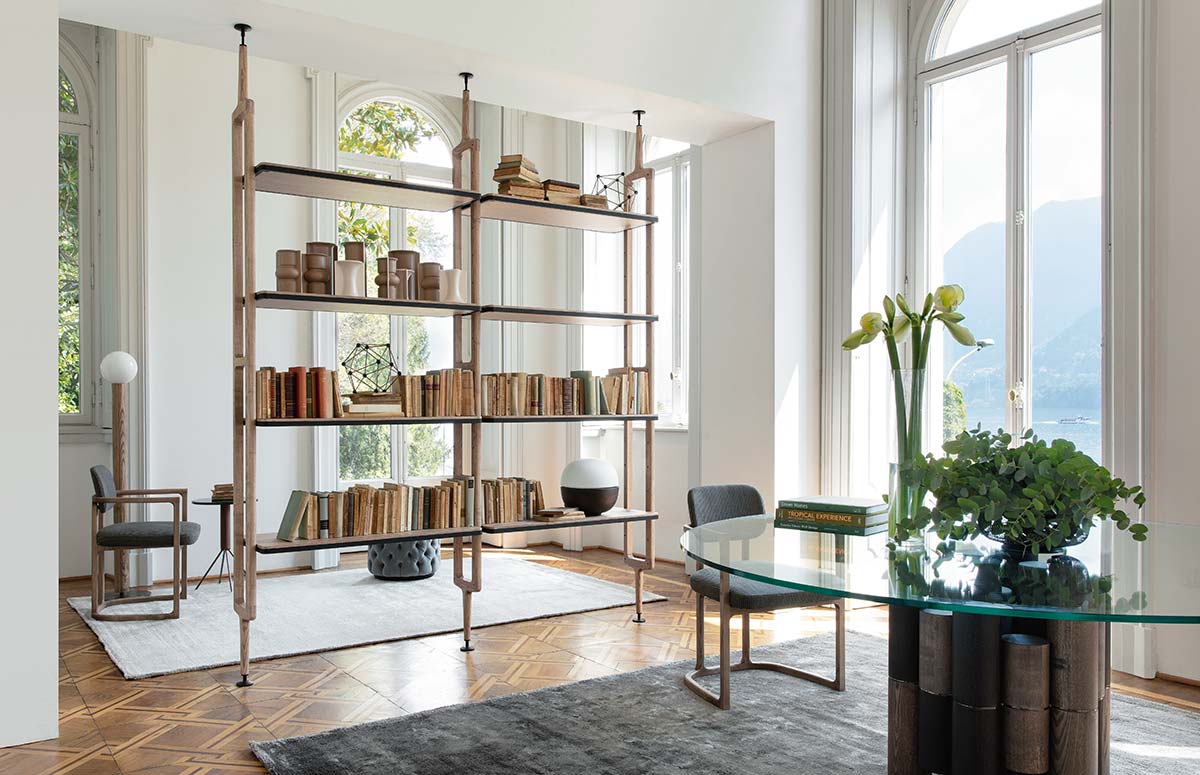
Aria by Porada – Design David Dolcini
With Porada the designer shares a stylistic approach based on ‘elegant balance’: “I am increasingly fond of things with a delicate magic, that elegant balance that doesn’t need to shout: in this stylistic dimension, however, there is room for a bit of irony, and for the details that set the projects apart. This is my signature, a sign that is always very subtle, connected with emotion. In the process of design, man has to remain at the center, because I believe objects should be experienced and discovered over time: like a person you discover more about even after having met them many times, new aspects that always surprise you. That’s magic.”
In this sense, the Halo lamp designed for Porada is emblematic. “It is composed of two very simple objects, a ring with an LED inside and a marble base; to join the two parts I have created an intersection in the marble (studying Castiglioni, who created an opening in Arco to move the lamp), as if a force exerted by the ring were creating the void in the cylinder of the base, a void that allows us to understand the presence of the material, while being functional to support the upper part. No sign should be unjustified, even if its perception is not immediate, but gets discovered over time.”
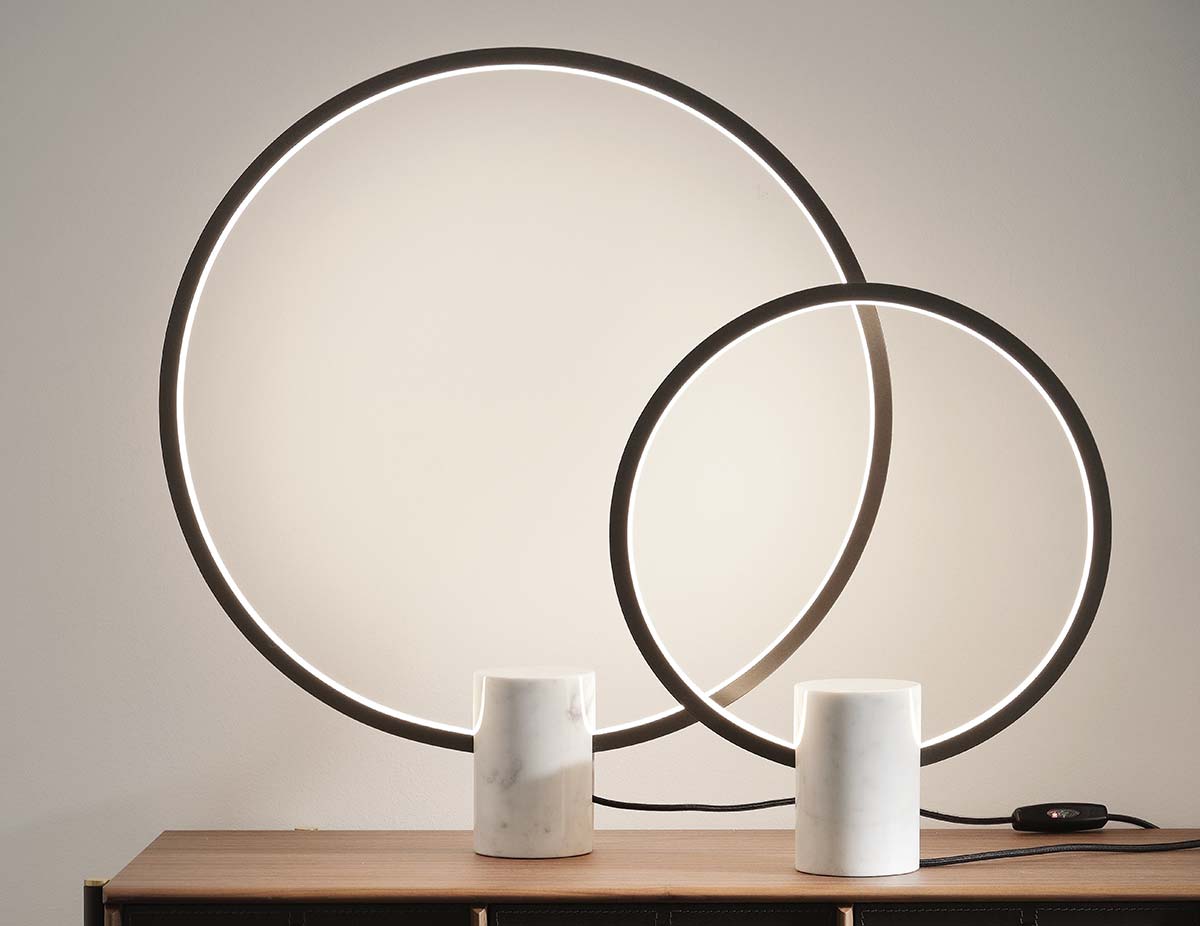
Halo by Porada – Design David Dolcini
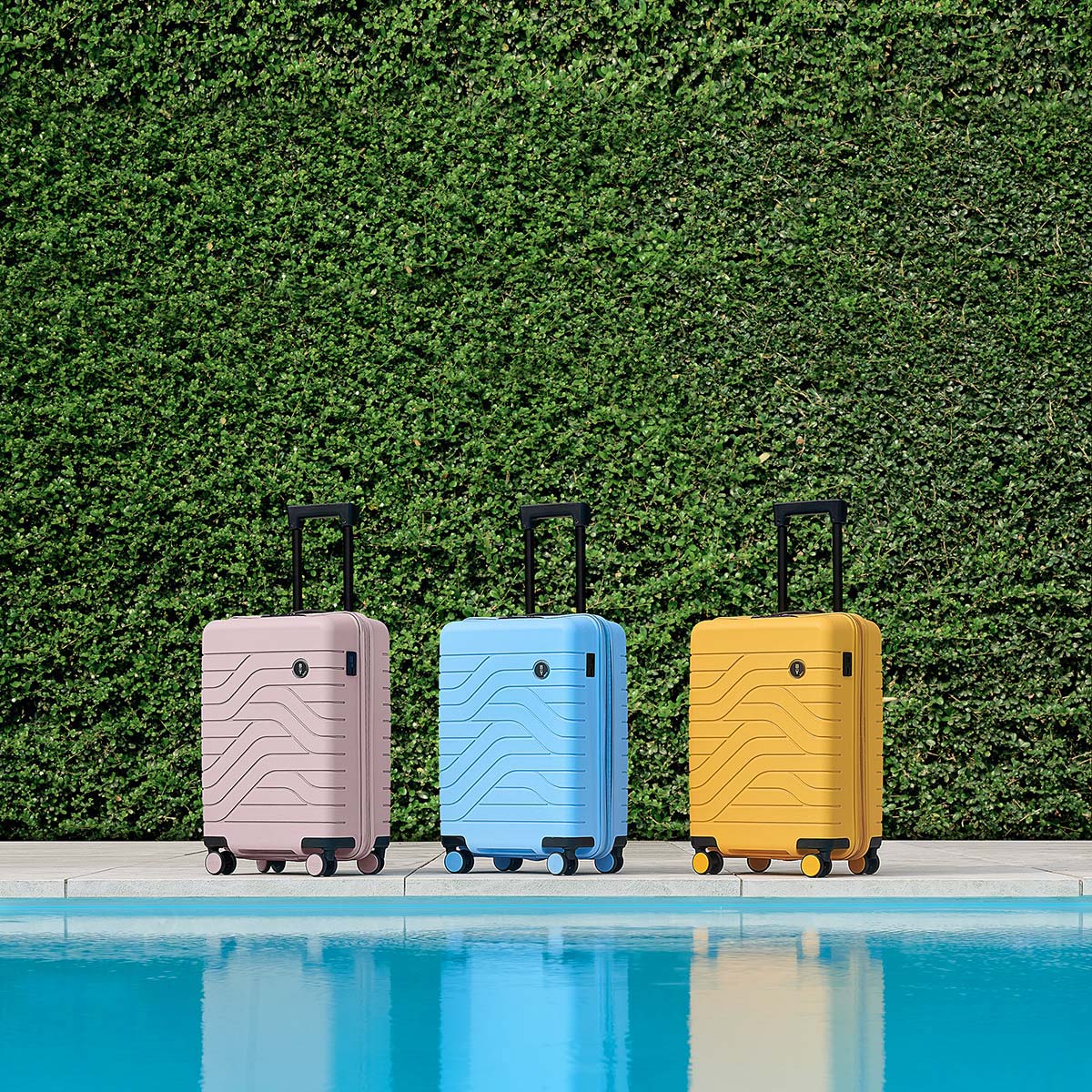
Ulisse by Bric’s – Design David Dolcini
The importance of timing is a motif that returns, not just a priori, in the design, but also in a discourse on the usability of a product: “The sustainability of an object also depends on its durability, which has nothing to do with trends. The task of a designer is to create objects that will last a long time, things that are well-designed, which means responding to aesthetic canons while having a very strong functional aspect. Never before as in these recent months have we understood, in our homes, that there has to be room only for what is comfortable and ensures functional quality.” Another example of the accent on practical aspects is the Ulisse suitcase designed for Bric’s: the details of the wheels, the correct balance, the relationship between width and depth, a summary of his experience as a cosmopolitan traveler – even in the image, a print inspired by metro maps.
In the future? “I believe the world of childhood is a very appealing theme, along with product design in high-tech contexts: we are surrounded by a thousand fantastic devices, but they have very short lives. This is a very important theme for designers, a big challenge. But it is a world that is too speedy for me!” To see the true nature of David Dolcini in the near future, we will have to wait for the conclusion of a personal project, on the boundary between art and design, where his research on wood will lead to original results. So we will wait, for the “necessary time.”

